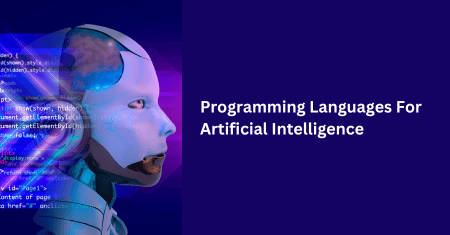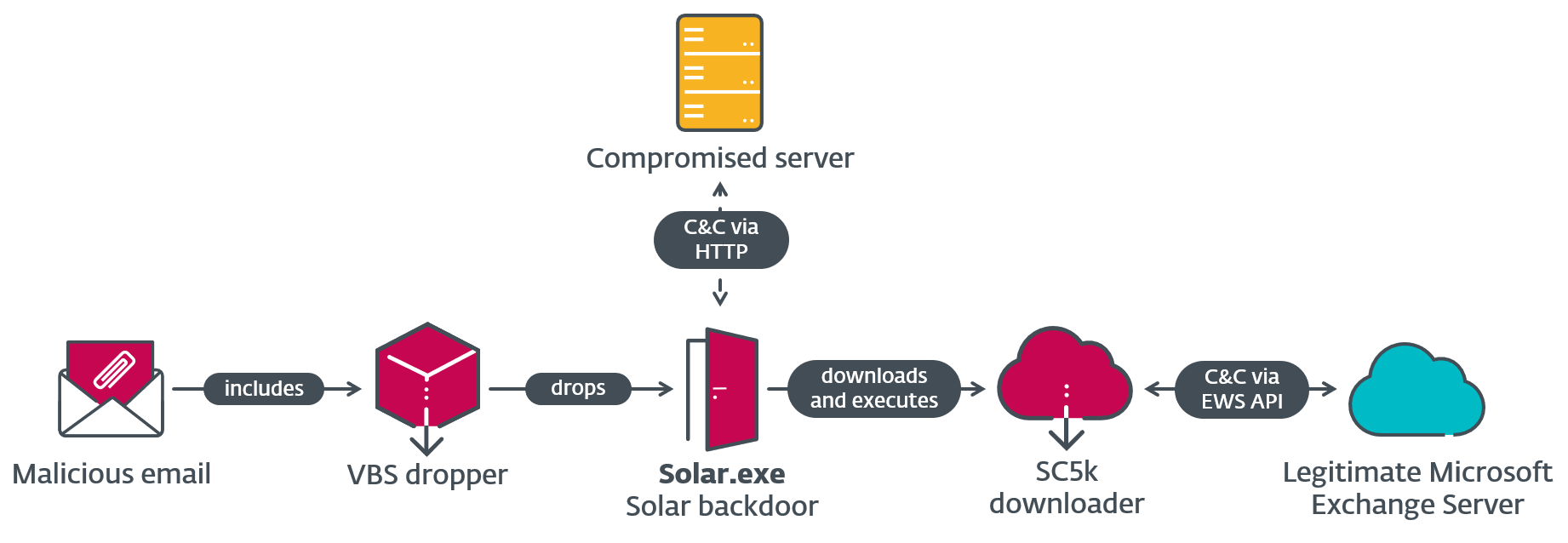
15 spetember 2023

In case your group is contemplating the mixing of Artificial Intelligence (AI), it’s important to discover the programming languages that ought to be a part of your builders’ toolkit.
Synthetic Intelligence has turn into a focus for companies aiming to boost their progress potential. AI affords the promise of streamlining and optimizing routine duties, leading to time and value financial savings. As soon as AI programs are carried out, you possibly can count on these duties to be executed quicker, with higher precision and reliability in comparison with human efficiency.
Furthermore, AI possesses the potential to quickly analyze enter from varied sources, akin to buyer suggestions or collected knowledge, enabling it to make knowledgeable enterprise choices. AI may be harnessed in quite a few methods, together with as chatbots, in cell and net functions, and inside analytical instruments for sample recognition and course of optimization. In essence, AI has the potential to boost nearly each side of your operations.
Nevertheless, to efficiently incorporate AI into your organization’s programs and companies, you’ll want expert software program engineers who’re well-versed in essentially the most appropriate programming languages for AI improvement.
So, which programming languages do you have to contemplate? There are a number of languages that may make it easier to flip your AI integration aspirations into actuality.
Let’s discover 9 of the highest programming languages for Synthetic Intelligence.
Python
Python stands out as the preferred programming language for synthetic intelligence. Its simplicity, readability, and intensive libraries like TensorFlow and PyTorch make it a best choice for AI improvement. Python’s ease of use permits builders to rapidly prototype AI fashions and algorithms, lowering improvement time and prices. Furthermore, Python’s group help and vibrant ecosystem make it a flexible language for AI tasks of all scales.
Key Options:
- Simple-to-learn syntax.
- Wealthy libraries for machine studying and deep studying.
- Robust group help.
- Cross-platform compatibility
Java
Java is famend for its portability and scalability, making it a stable alternative for AI functions. It boasts a robust emphasis on safety, which is essential for AI programs that deal with delicate knowledge. Java’s well-established frameworks like Deeplearning4j and Weka present strong instruments for AI improvement. Its efficiency and flexibility make it appropriate for each analysis and production-grade AI options.
Key Options:
- Cross-platform compatibility.
- Excessive efficiency.
- Strong safety features.
- Mature libraries and frameworks.
Learn Extra: Golang vs Java
C++
C++ is a high-performance programming language well-suited for AI functions requiring computational velocity and effectivity. It’s usually used for growing AI programs in resource-intensive fields like gaming and robotics. C++’s skill to straight work together with {hardware} and reminiscence administration affords fine-grained management, making it a great alternative for performance-critical AI tasks.
Key Options:
- Excessive efficiency.
- Low-level system entry.
- Environment friendly reminiscence administration.
- Robust help for multi-threading
R
R is a specialised language for statistical computing and knowledge evaluation, making it a most popular alternative for data-driven AI tasks. It excels in duties like knowledge preprocessing, statistical modeling, and visualization. R’s intensive package deal ecosystem, together with packages like caret and randomForest, simplifies AI mannequin improvement for knowledge scientists and statisticians.
Key Options:
- Statistical evaluation capabilities.
- Complete package deal ecosystem.
- Wonderful knowledge visualization instruments.
- Perfect for data-centric AI tasks.
Julia
Julia is a comparatively new language that has gained consideration for its efficiency and ease of use in scientific computing and AI. Its just-in-time (JIT) compilation and a number of dispatch make it environment friendly for numerical and scientific computing duties. Julia’s rising group and help for distributed computing make it a promising alternative for AI functions that require high-performance computing.
Key Options:
- Excessive-performance JIT compilation.
- A number of dispatch for straightforward operate specialization.
- Scalability and distributed computing help.
- Open-source and rising group.
Lisp
Lisp, with its lengthy historical past in AI analysis, continues to be related for sure AI functions. Its symbolic computing capabilities and help for recursion make it appropriate for skilled programs and pure language processing. Whereas not as broadly used as Python or Java, Lisp stays an vital language in AI analysis.
Key Options:
- Symbolic computing.
- Recursive programming.
- Historic significance in AI analysis.
- Perfect for particular AI domains.
Prolog
Prolog is a logic programming language designed for AI functions, notably in rule-based reasoning and skilled programs. It excels in data illustration and inference. Prolog’s distinctive syntax and logical reasoning capabilities make it a robust software for AI tasks that require rule-based decision-making.
Key Options:
- Logic programming for rule-based reasoning.
- Environment friendly sample matching and inference.
- Perfect for skilled programs and knowledge-based AI.
Go (Golang)
Go, also called Golang, is a language acknowledged for its simplicity and effectivity. Whereas not as feature-rich as another languages on this checklist, it’s gaining reputation in AI as a consequence of its efficiency and powerful help for concurrency. Go is well-suited for constructing AI functions that require distributed processing.
Key Options:
- Simplicity and readability.
- Environment friendly concurrency help.
- Perfect for distributed AI functions.
- Robust efficiency.
Ruby
Ruby is probably not the primary language that involves thoughts for AI improvement, nevertheless it affords some distinctive options that make it worthwhile in particular situations. Ruby’s readability, dynamic typing, and metaprogramming capabilities may be advantageous for AI scripting and prototyping duties.
Key Options:
- Excessive-level scripting.
- Dynamic typing and metaprogramming.
- Perfect for AI prototyping and experimentation.
Which Language is the Finest for AI?
The selection of programming language for AI largely is dependent upon the precise undertaking necessities, your familiarity with the language, and the present infrastructure. Python stays essentially the most broadly used language for AI as a consequence of its simplicity and strong libraries. Nevertheless, for specialised functions, different languages like R, Java, or C++ could also be extra appropriate.
When deciding which language to make use of for synthetic intelligence, contemplate the next components:
Mission Targets: Outline the objectives and necessities of your AI undertaking. Totally different languages excel in numerous areas of AI, akin to machine studying, pure language processing, or robotics.
Present Ability Set: When you or your group are already proficient in a specific language, it could be extra environment friendly to leverage that experience.
Library Ecosystem: Consider the supply and high quality of libraries and frameworks in your chosen language. A powerful ecosystem can considerably velocity up improvement.
Efficiency Necessities: Take into account the computational sources and efficiency necessities of your undertaking. Low-level languages like C++ or Go could also be mandatory for resource-intensive duties.
Group and Assist: Be sure that the language has an energetic group and ongoing help, as AI applied sciences evolve quickly.
Conclusion
Choosing the suitable programming language in your AI undertaking is a pivotal determination that may considerably influence its success. Whereas Python continues to be the best choice as a consequence of its simplicity and huge libraries, it’s vital to notice that different languages akin to Java, C++, R, Julia, Lisp, Prolog, Go, and Ruby every carry their distinctive strengths to the desk and are well-suited for particular AI functions. When making your determination, it’s important to rigorously assess your undertaking’s necessities and align them with the actual strengths of every language to make an knowledgeable alternative.
Irrespective of which programming language you go for, keep in mind that the languages mentioned on this article are all worthwhile instruments for advancing the sector of synthetic intelligence. In case you have any questions or want additional steerage on deciding on the proper language in your AI undertaking, don’t hesitate to achieve out to us. We’re right here to help you in harnessing the ability of AI in your group’s success.






